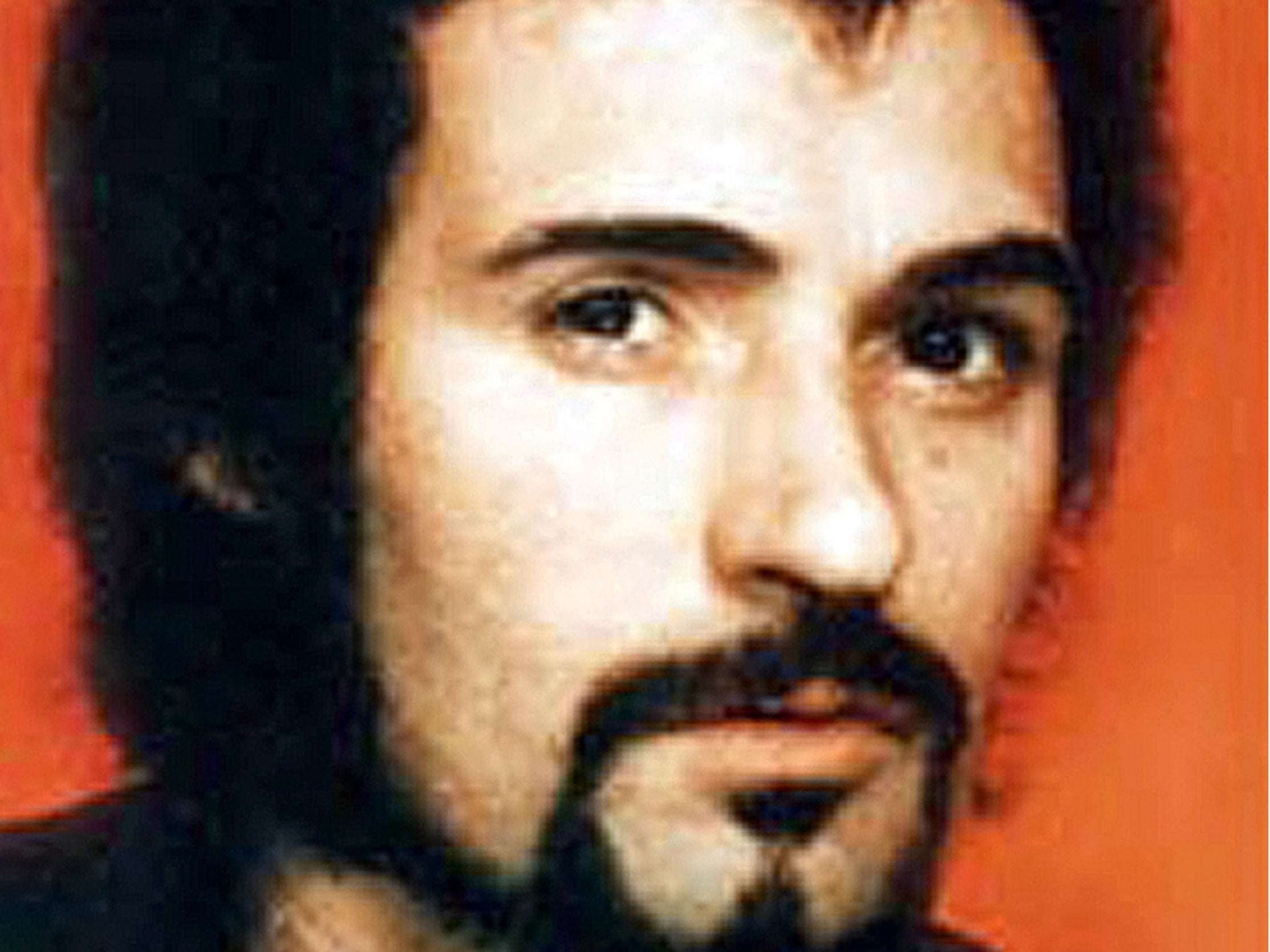Yorkshire Ripper Peter Sutcliffe cremated at secret funeral
‘All our rights have been pinched,’ says serial killer’s brother

Your support helps us to tell the story
From reproductive rights to climate change to Big Tech, The Independent is on the ground when the story is developing. Whether it's investigating the financials of Elon Musk's pro-Trump PAC or producing our latest documentary, 'The A Word', which shines a light on the American women fighting for reproductive rights, we know how important it is to parse out the facts from the messaging.
At such a critical moment in US history, we need reporters on the ground. Your donation allows us to keep sending journalists to speak to both sides of the story.
The Independent is trusted by Americans across the entire political spectrum. And unlike many other quality news outlets, we choose not to lock Americans out of our reporting and analysis with paywalls. We believe quality journalism should be available to everyone, paid for by those who can afford it.
Your support makes all the difference.Peter Sutcliffe has been cremated in a small secret ceremony as his own family was “frozen out”, his brother said.
Mr Sutcliffe, the convicted serial killer also known as the Yorkshire Ripper, was cremated following a funeral at an unknown location on Friday, Mick Sutcliffe told the Daily Mirror.
Mick Sutcliffe, 70, said he was told the funeral would take place this week, with family members able to attend online via Zoom.
But he was told on Friday morning that the funeral had taken place in private without him and other family members being invited. The funeral is thought to have been organised by the killer’s ex-wife.
“All our rights have been pinched,” he told the Mirror. “Nobody has even officially told us yet that he has been cremated.
“I can’t believe we were banned from our own brother’s funeral.”
Mr Sutcliffe said he and his family needed to get closure because his brother “caused so much pain” and “put our family through hell”.
“So we needed to be at that funeral to get that closure. We wanted to say goodbye,” he said.
In a eulogy he had prepared for the service, shared with the newspaper, Mr Sutcliffe wrote: “Peter, all of your family love you as Peter Sutcliffe, although you ruined all our lives when you became the Yorkshire Ripper.”
Last week an inquest heard Sutcliffe died in hospital aged 74 from a combination of Covid-19, diabetes and heart disease.
He was an inmate of the maximum-security Frankland jail but died at the nearby University Hospital of North Durham on 13 November after testing positive for Covid-19.
Mr Sutcliffe became one of the most notorious serial killers in Britain after he began murdering women in the 1970s. While he is thought to have started attacking women – primarily sex workers – 10 years earlier, his first known murder occurred in 1975 when he killed 28-year-old Wilma McCann, a mother of four from Leeds. He hit her in the head with a hammer and stabbed her 15 times in October 1975.
Before Mr Sutcliffe was caught in 1981, his crimes shook the nation – with police eventually being forced to issue warnings across Yorkshire and the northwest of England that women should not venture outside alone at night.
His known 13 victims were: Wilma McCann, Emily Jackson, Irene Richardson, Tina Atkinson, Jayne MacDonald, Jean Jordan, Yvonne Pearson, Helen Rytka, Vera Millward, Josephine Whitaker, Barbara Leach, Marguerite Walls and Jacqueline Hill.
Mr Sutcliffe was sentenced to 20 life terms for the 13 murders and the attempted murder of seven more in May 1981.
The manhunt that led to his arrest fuelled public outrage after detectives and appeared to make a distinction between the killing of sex workers and “innocent” or “totally respectable” women.
Richard McCann, the son of Sutcliffe’s first known victim, said that when 16-year-old Jayne MacDonald was killed in 1977, officers referred to her as the first “innocent” victim.
Mr McCann asked authorities to apologise for the language and tone and terminology used at the time.
Nina Lopez, a spokesperson for the English Collective of Prostitutes, a leading campaign group which supports the decriminalisation of prostitution, told The Independent after Mr Sutcliffe’s death that the officials’ language “explained why it had taken them all those years” to catch Mr Sutcliffe.
“It showed their contempt for sex workers and utter contempt for working-class women generally,” she said.
West Yorkshire Police Chief Constable John Robins issued a “heartfelt” apology to the families of Sutcliffe’s victims, saying the language used by senior officers at the time caused families “additional distress and anxiety”.
Mr Sutcliffe, who began to use his mother’s maiden name of Coonan after his conviction, had been ill for weeks before his death. He had several underlying health conditions that left him almost blind and needing to use a wheelchair.
He had just returned to prison after another stint in hospital two weeks earlier when he was treated for a suspected heart attack.
Mr Sutcliffe spent more than three decades of his sentence in Broadmoor Hospital, in Berkshire, after being diagnosed with paranoid schizophrenia, and was ruled to be mentally fit to be transferred to the maximum-security Frankland prison in August 2016, aged 70.
Additional reporting by PA
Subscribe to Independent Premium to bookmark this article
Want to bookmark your favourite articles and stories to read or reference later? Start your Independent Premium subscription today.




Join our commenting forum
Join thought-provoking conversations, follow other Independent readers and see their replies
Comments